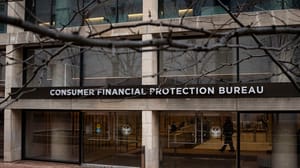Institutions Aim to Boost Bets on Hedge Funds, Private equity - SurveyInstitutions Aim to Boost Bets on Hedge Funds, Private equity - Survey
72 percent of institutional investors plan to increae their exposure to illiquid alternatives in 2017.
December 1, 2016

By Sam Forgione
NEW YORK, Dec 1 (Reuters) - The majority of institutionalinvestors worldwide are seeking to increase their investments inriskier alternatives that are not publicly traded such as hedgefunds, real estate and private equity over the next one to twoyears to combat potential low returns and choppiness in publicmarkets, a Fidelity survey showed on Thursday.
The Fidelity Global Institutional Investor Survey showedthat 72 percent of institutional investors worldwide, frompublic pension funds to insurance companies and endowments, saidthey would increase their exposure to these so-called illiquidalternatives in 2017 and 2018.
The survey, which included 933 institutions in 25 countriesoverseeing a total of $21 trillion in assets, found that theinstitutions were most concerned with a low-return investingenvironment over the next one to two years, with 28 percent ofrespondents citing it as such. Market volatility was thesecond-biggest worry, with 27 percent of respondents citing itas their top concern.
Private sector pensions were most concerned about alow-return environment, with 38 percent of them identifying itas their top worry, while sovereign wealth funds were mostnervous about volatility, with 46 percent identifying it astheir top concern.
"With the concern about the low-return environment as wellas market volatility, as a result we're seeing more of aninterest in alternatives, where there's a perception of higherreturn opportunities," said Derek Young, vice chairman ofFidelity Institutional Asset Management and president ofFidelity Global Asset Allocation.
Investors seek alternatives, which may invest in assets suchas timber or real estate or use tactics such as betting againstsecurities, for "uncorrelated" returns that do not move intandem with traditional stock and bond markets.
Young noted, however, that illiquid alternatives can also bevolatile without it being obvious, since they lack daily pricingand as a result may give the perception of being less volatile.
"We would hope and would expect that institutional investorswould appreciate the volatility that still exists within theunderlying investments," he said in reference to illiquidalternatives.
The survey, which was conducted over the summer, found thatdespite their concerns, 96 percent of the institutions believedthey could achieve an 8 percent investment return on average incoming years.
U.S. public pension plans, on average, had about 12.1percent of their assets in real estate, private equity and hedgefunds combined as of Sept. 30, according to Wilshire TrustUniverse Comparison Service data. (Reporting by Sam Forgione; Editing by Phil Berlowitz)





